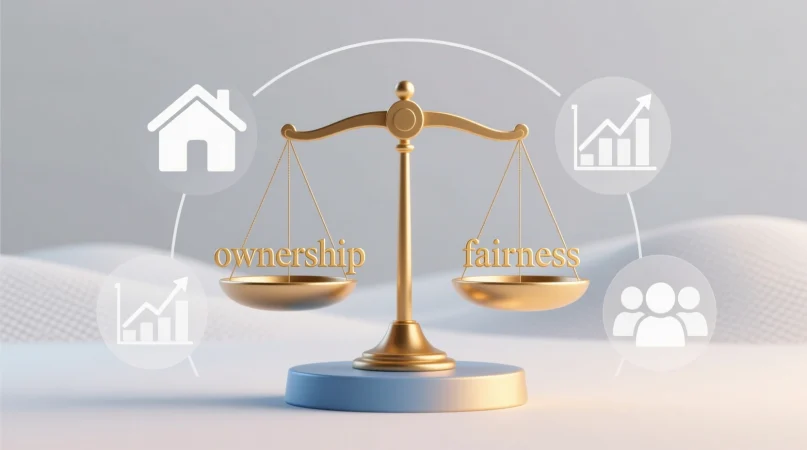Ever heard someone talk about “equity” in business, real estate, investing, or even social discussions — and wondered what it actually means? 🤔
It’s one of those words everyone uses, yet it carries different meanings depending on the context.
If someone is buying a house, starting a business, investing in stocks, or discussing fairness in society, Equity plays a huge role in money, ownership, and opportunity.
This guide breaks down the meaning of equity in the simplest way possible — with examples, comparisons, and real-life uses. No confusing finance jargon. Just clear, easy-to-understand meaning.
Definition & Meaning
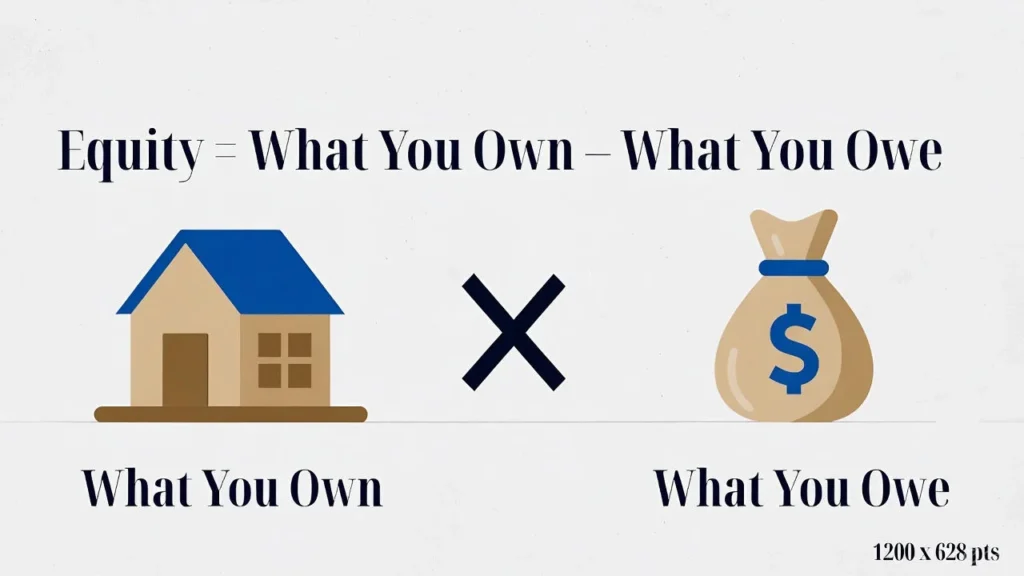
Equity refers to ownership value — what you truly own after subtracting what you owe.
In simple terms:
Equity = What you own − What you owe
Examples:
- Equity in a house
- Equity in a business
- Equity in stocks
- Equity as fairness/equal opportunity
Background & History
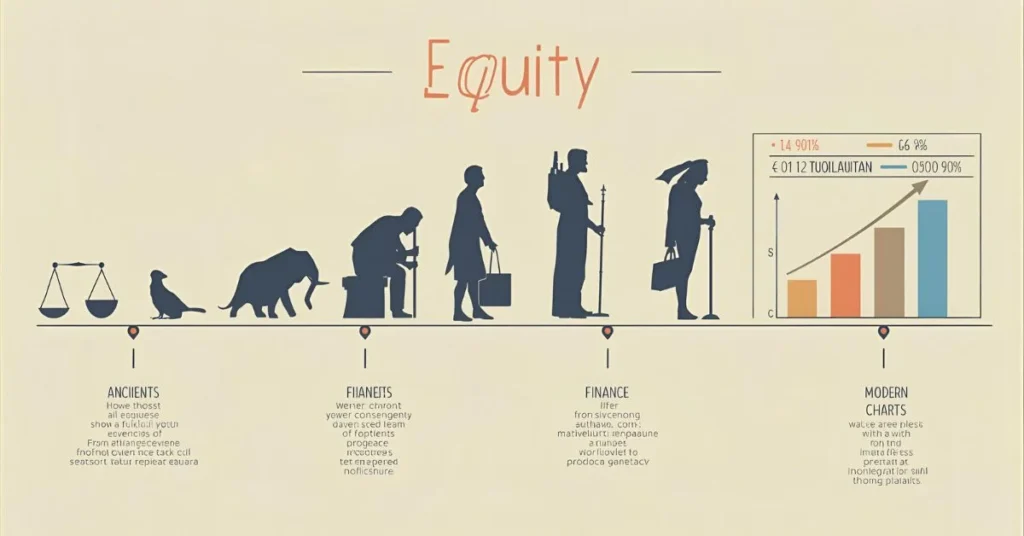
The term comes from the Latin aequitas, meaning fairness, balance, and justice.
Over time, the word evolved into multiple fields:
- Finance: Value you own
- Real Estate: Property value minus loan
- Business: Share of a company
- Social Context: Fair treatment and equal access
Its core meaning remains the same — balance and fairness.
Usage in Various Contexts
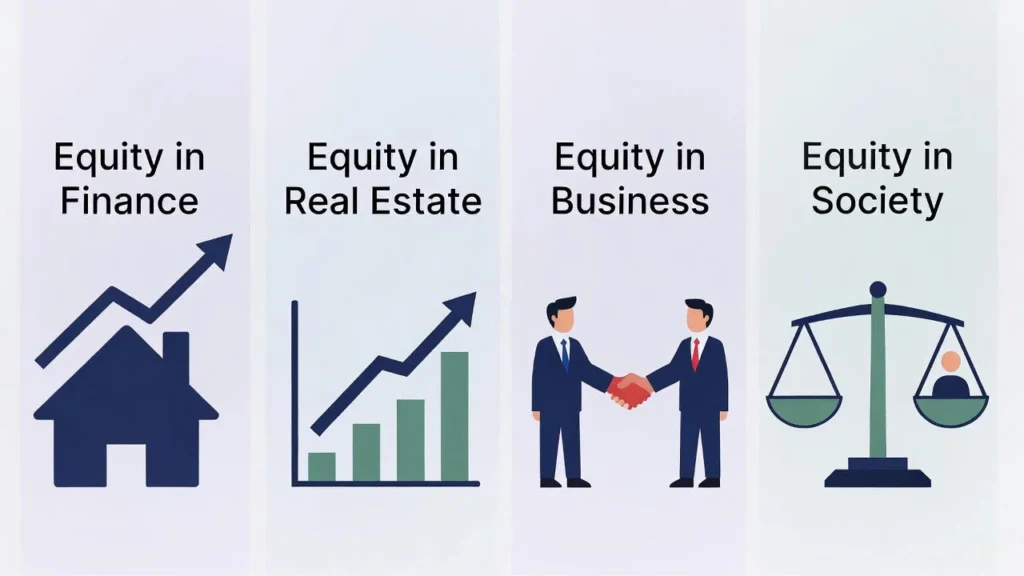
1. In Finance / Investing
Equity = shares or ownership in a company
Example: “I own equity in Apple.”
2. In Real Estate
Equity = property value minus mortgage
Example: Home worth $300k with $200k loan → $100k equity.
3. In Business
Equity = owners’ value after debts
Shown as “Owner’s Equity” on balance sheets.
4. Social & Cultural Context
Equity = fairness + equal access to opportunities
Not the same as equality.
Common Misconceptions & Clarifications
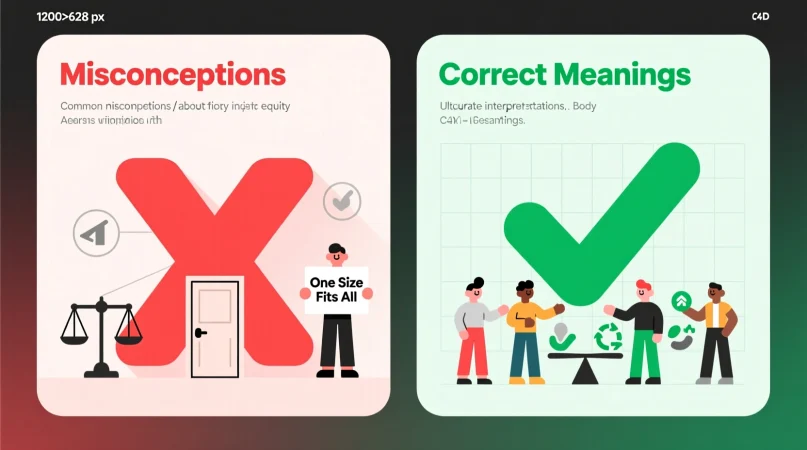
❌ Equity means money only.
✔ It also means fairness in society.
❌ Equity and Equality are the same.
✔ Equality = everyone gets the same
✔ Equity = everyone gets what they need to succeed
❌ Buying equity always means profit.
✔ Equity can increase or decrease with market changes.
Types of Equity (With Examples)
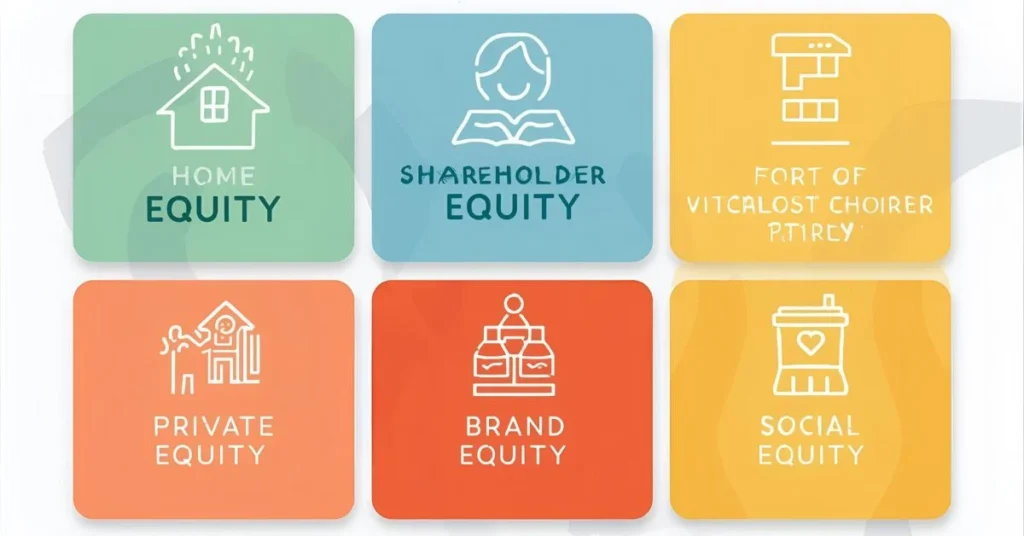
| Type | Meaning | Example |
|---|---|---|
| Home Equity | Property value minus debt | House worth $250k, loan $150k → $100k equity |
| Shareholder Equity | Value owned by shareholders | Owning stock in a company |
| Private Equity | Investment in private companies | Venture capital, buyouts |
| Brand Equity | Value of reputation | Apple’s strong brand value |
| Social Equity | Fairness & opportunity | Equal access to education |
Similar Terms & Alternatives
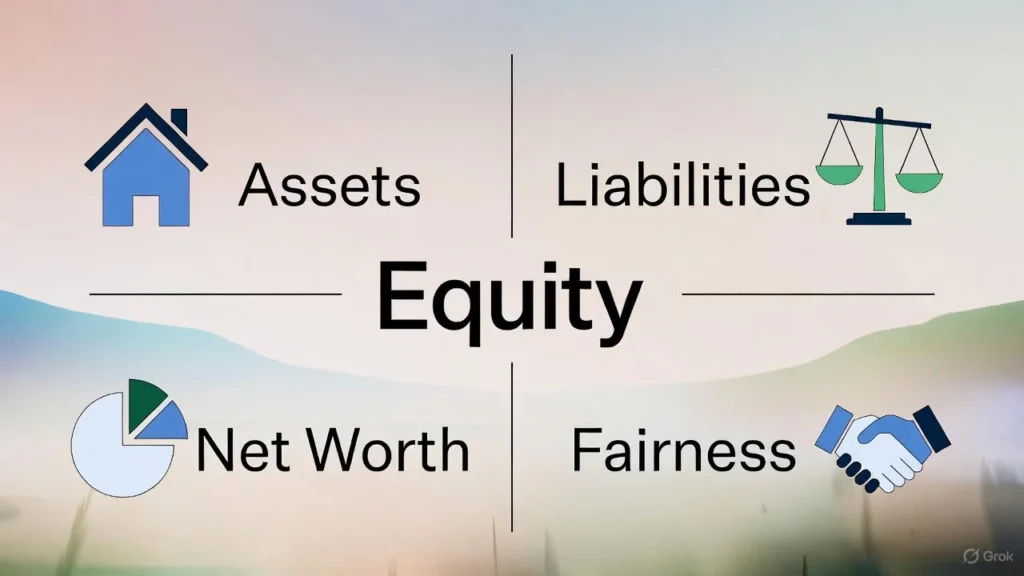
Here are related terms people often confuse:
| Term | Meaning |
|---|---|
| Assets | What you own |
| Liabilities | What you owe |
| Net Worth | Assets − liabilities |
| Equality | Same treatment for all |
| Fairness | Justice and balance |
How Equity Is Calculated
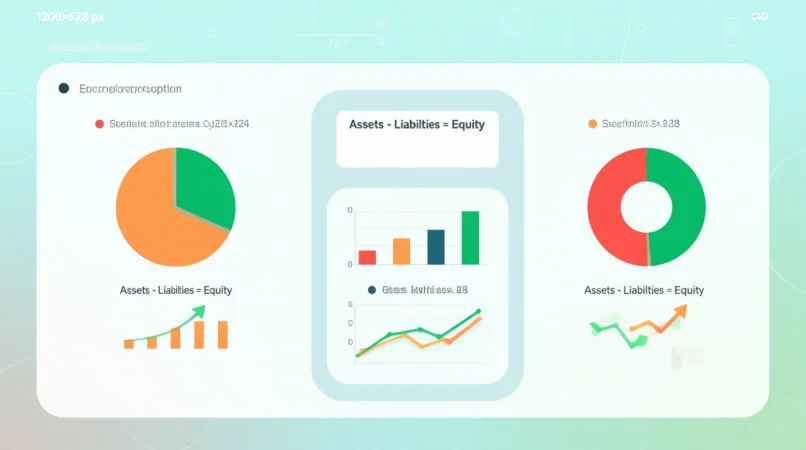
A simple formula:
Equity = Assets − Liabilities
Examples:
- Business: $500,000 assets − $350,000 debts = $150,000 equity
- House: $200,000 market value − $120,000 mortgage = $80,000 equity
- Personal net worth uses the same formula.
Regional or Cultural Differences

- US & UK: Mostly used in finance and real estate
- Asia: Common in investing and startup culture
- Global: Increasingly used in social justice and fairness discussions
Context changes interpretation.
Comparison With Similar Concepts
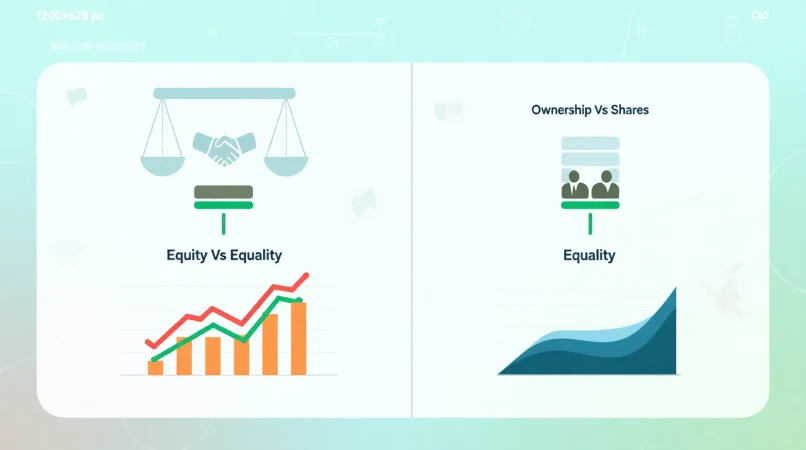
Equity vs. Equality
- Equity = fairness
- Equality = same for everyone
Equity vs. Ownership
- Equity measures value of ownership
- Ownership means control
Equity vs. Shares
- Shares are units
- Equity is the total value
Usage in Online Communities & Business Conversations

- “How much equity do founders have?”
- “My home equity increased this year.”
- “We need equity in education.”
- “Investors take 20% equity in startups.”
The meaning shifts with context but stays tied to value or fairness.
Hidden or Alternative Meanings
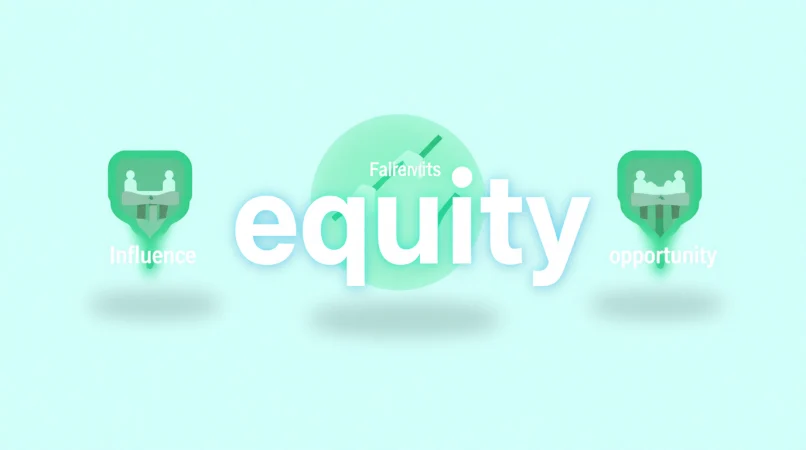
Equity can imply:
- Long-term wealth
- Personal stake in something
- Subtle power or influence
- Contribution to a shared goal
In social discussions, it represents justice, not money.
Suitability for Professional Communication

Equity is a professional and widely accepted term.
Safe for:
- Business reports
- Investor pitches
- Corporate emails
- Academic work
Just ensure context is clear (financial or social).
FAQs
1. Does equity always mean money?
No, it also means fairness in non-financial discussions.
2. What is equity in a home?
The value you truly own after mortgage deduction.
3. How is business equity calculated?
Assets minus liabilities.
4. Does stock equity increase?
Yes, with rising stock value — but it can also decrease.
5. Equity or equality — which is fairer?
Equity focuses on fairness, not sameness.
Conclusion
Equity is a powerful word that represents value, ownership, fairness, and opportunity.
If you’re calculating home value, understanding business finance, or discussing justice in society, equity helps you see what is truly yours — or what is fair for everyone.
Clear, versatile, and meaningful, it plays a major role in money, equality, and modern life.

